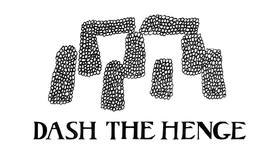
Robb Kunkel
Abyss
“…one of the best, perhaps the best, on the label…displays the typical Tumbleweed combination of a loose, stoned ‘Astral Flash’ vibe and a classy production.” – Patrick Lundborg, Acid Archives
Denver in 1971 was the right place, right time for musician Robb Kunkel. He’d just come off a year rambling around North America before settling in Colorado, landing a gig as a promotions rep for ABC-Dunhill. The weed was potent, magic was in the air, and Kunkel’s life was about to change forever.
The San Fernando earthquake had spurred industry pals Bill Szymczyk and Larry Ray to join forces to form their own label—and get the hell out of California. The duo reached out to Kunkel who helped set up shop for their burgeoning Denver enterprise, Tumbleweed Records. Kunkel secured a headquarters, helped staff the label, and brought in talent, including Danny Holien, Pete McCabe, Dewey Terry. But Kunkel was itching to make a record of his own. Perhaps to repay him, Tumbleweed agreed.
A longtime piano man and blues aficionado, Kunkel had the soul of a poet and the restless spirit of the jazz musicians he also worshipped. For his album, Kunkel wanted a jazz producer, and Szymczyk hired Ed Michel, then the head of Impulse Records, who brought on a string quartet and jazz legend Ray Brown and Wrecking Crew musician Jimmy Bond.
Ostensibly a pop album at heart, Abyss brings all of Kunkel’s influences together and vacillates wildly in style. From folky ditties to pensive wailers, Kunkel’s songs are often piano-driven but rarely straightforward. Tracks regularly veer off into jazz or baroque string arrangements, but there’s a raw quality—in the production and in Kunkel’s literary and at times earnest lyrics. It’s the album of a young and uninhibited musician who has realized a lifelong dream and who takes it seriously, but not too seriously.

